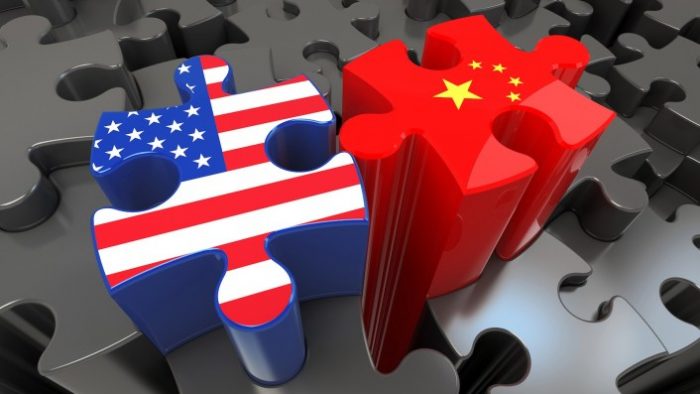Asian markets bounced back on Thursday after US President Donald Trump announced a three-month pause on the large tariffs he imposed on dozens of countries last week, while ramping up pressure on China.
The sudden turnaround, a day after hefty tariffs started on most trading partners, followed intense financial market volatility, which spurred panic and upheaval in the US government’s bonds market and wiped vast sums off stock markets around the world.
Trump’s on-again, off-again approach after repeated threats of punitive measures on trading partners has baffled world leaders and business executives, who say it undermined their capacity to make decisions. But there was relief on Thursday in many countries, notably those anxious to reduce ‘reciprocal’ tariffs, as they now have 90 days to negotiate trade agreements to mitigate those levies.
ALSO SEE: China’s Yuan, US Treasuries Become Victims of Market Turmoil
Treasury Secretary Scott Bessent asserted that the pullback had been the plan all along to bring countries to the bargaining table. Trump, though, later indicated that the near-panic in markets that unfolded since his April 2 announcements had factored into his thinking. Despite insisting for days that his policies would never change, he told reporters on Wednesday: “You have to be flexible.”
10% on all imports, but 125% now for China
But he kept the pressure on China, the No-2 provider of US imports. Trump said he would raise the tariff on Chinese imports to 125% from the 104% level that took effect at midnight, further escalating a high-stakes confrontation between the world’s two largest economies. The two countries have traded tit-for-tat tariff hikes repeatedly over the past week.
Beijing on Wednesday slapped 84% tariffs on US imports to match Trump’s earlier tariff salvo and has vowed to “fight to the end” in an escalating tit-for-tat trade dispute between the world’s top two economies.
Trump’s reversal on the country-specific tariffs is not absolute. A 10% blanket duty on almost all US imports will remain in effect, the White House said. The announcement also does not appear to affect duties on autos, steel and aluminium that are already in place.
The 90-day freeze also does not apply to duties paid by Canada and Mexico, because their goods are still subject to 25% fentanyl-related tariffs if they do not comply with the US-Mexico-Canada trade agreement’s rules of origin. Those duties remain in place for the moment, with an indefinite exemption for USMCA-compliant goods.
“China is unlikely to change its strategy: Stand firm, absorb pressure, and let Trump overplay his hand. Beijing believes Trump sees concessions as a weakness, so giving ground only invites more pressure,” said Daniel Russel, vice president of international security and diplomacy at the Asia Society Policy Institute.
“Other countries will welcome the 90-day stay of execution — if it lasts — but the whiplash from constant zigzags creates more of the uncertainty that businesses and governments hate,” Russel said.
US stock indexes shot higher on the news, with the benchmark S&P 500 index closing 9.5% higher. Bond yields came off earlier highs and the dollar rebounded against safe-haven currencies.
China ‘goaded into bad response’
Trump’s tariffs had sparked a days-long selloff that erased trillions of dollars from global stocks and pressured US Treasury bonds and the dollar, which form the backbone of the global financial system. Canada and Japan said they would step in to provide stability if needed — a task usually performed by the United States during times of economic crisis.
Analysts said the sudden spike in share prices might not undo all of the damage. Surveys have found slowing business investment and household spending due to worries about the impact of the tariffs, and a Reuters/Ipsos survey found that three out of four Americans expect prices to increase in the months ahead.
Goldman Sachs cut its probability of a recession back to 45% after Trump’s move, down from 65%, saying the tariffs left in place were still likely to result in a 15% increase in the overall tariff rate.
Bessent shrugged off questions about market turmoil and said the abrupt reversal rewarded countries that had heeded Trump’s advice to refrain from retaliation. He suggested Trump had used the tariffs to create “maximum negotiating leverage for himself.”
“This was his strategy all along,” Bessent told reporters. “And you might even say that he goaded China into a bad position. They responded. They have shown themselves to the world to be the bad actor.”
Bessent is the point person in the country-by-country negotiations that could address foreign aid and military cooperation as well as economic matters. Trump has spoken with leaders of Japan and South Korea, and a delegation from Vietnam was due to meet with US officials on Wednesday.
Bessent declined to say how long negotiations with the more than 75 countries that have reached out might take.
Trump said a resolution with China was possible as well. But officials have said they will prioritize talks with other countries.
“China wants to make a deal,” Trump said. “They just don’t know how quite to go about it.”
Trump told reporters that he had been considering a pause for several days. On Monday, the White House denounced a report that the administration was considering such a move, calling it “fake news.”
Earlier on Wednesday, before the announcement, Trump tried to reassure investors, posting on his Truth Social account, “BE COOL! Everything is going to work out well. The USA will be bigger and better than ever before!”
- Reuters with additional editing by Jim Pollard
ALSO SEE:
China Hits Back With 84% Levy, After Trump Doubled US Tariffs
US And China ‘Stuck in an Expensive Game of Chicken’ – Nomura
Trump Tariffs Could Boost Demand For Renewables: Think Tank
Asian Markets Simmer as China Rejects US Tariffs ‘Blackmail’
Trump Tariff ‘Medicine’ Triggers Asian Markets Bloodbath
China Hits Back With 34% Tariffs on US Goods; SE Asia Reeling
TikTok Still Up And Running in US After Tariffs Thwart Deal
























